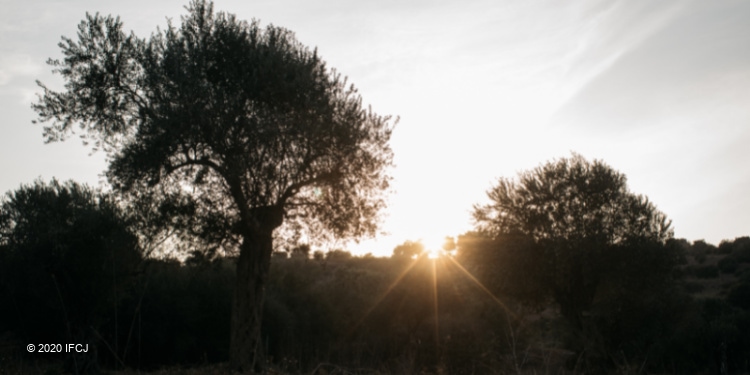The Greatest Light
Yael Eckstein | July 28, 2023

“For I know the plans I have for you,” declares the LORD, “plans to prosper you and not to harm you, plans to give you hope and a future.” — Jeremiah 29:11
This month, Jews around the world observe Tisha B’Av, the darkest day on the Jewish calendar when we mark the destruction of the two Holy Temples and other calamities that have occurred on this day throughout history. These devotions share the lessons of hope that Tisha B’Av has for us today.
Once a year, my family and I join Jews around the world in our yearly mourning for the destruction of the Holy Temples and every tragedy the Jews have experienced ever since on Tisha B’Av. This day has been mourned for thousands of years—for centuries during which there seemed to be no end in sight to the Jewish people’s long and painful suffering.
However, from my perspective, although I fasted as the adults did (starting when I was 12, after my bat mitzvah) and felt the sad energy of the day, I could not help but also feel a sliver of joy. Yes, we have suffered; yes, we faced challenges; but oh, how far we had come and how brightly God’s providence has been demonstrated to His children over and over again. That ray of light amidst the darkness formed my hope for the future and a vision of redemption.
It may sound strange at first, but it is on Tisha B’Av, the darkest day on the Jewish calendar, that we truly experience hope. Just as it takes the darkest skies to see the brightest stars, it is on this black day that we can experience the greatest light.
The Greatest Light
Tisha B’Av, the ninth of Av, is the saddest day of the Jewish year. Both the First and Second Temples were destroyed on Tisha B’Av. In 1290 on Tisha B’Av, the Jews were expelled from England. In 1492 on Tisha B’Av, the Jews were kicked out of Spain. World War II and the Holocaust were the direct results of World War I, which—you guessed it—began on July 28, 1914, Tisha B’Av.
On this night, Jewish communities read the book of Lamentations, which begins “Eicha,” “How can it be?” We lament the dramatic change that the Jewish people underwent when they were exiled from their land and the Temple was destroyed. Jerusalem, once the city of joy, had been transformed into a city in mourning. The Jewish people—once admired, esteemed, and a great spiritual people—were reduced to exiles, poor and helpless. Most tragic of all was the shattered relationship with the God of Israel—when once, the Jews enjoyed a unique and powerful connection to the Lord as His chosen people, His special treasure, the apple of His eye.
However, Tisha B’Av is not all about tragedy and mourning. Through the darkness, there is a ray of light, a glimmer of hope, a glance into the future. As we mourn what we lost in the past, we look toward what God has in store for us in the future. And that is the greatest light.
Your Turn:
It would be an honor and a privilege for me to take your prayer to the holiest site in all of Israel—the Western Wall—and pray for you. Please submit your prayer request today!
